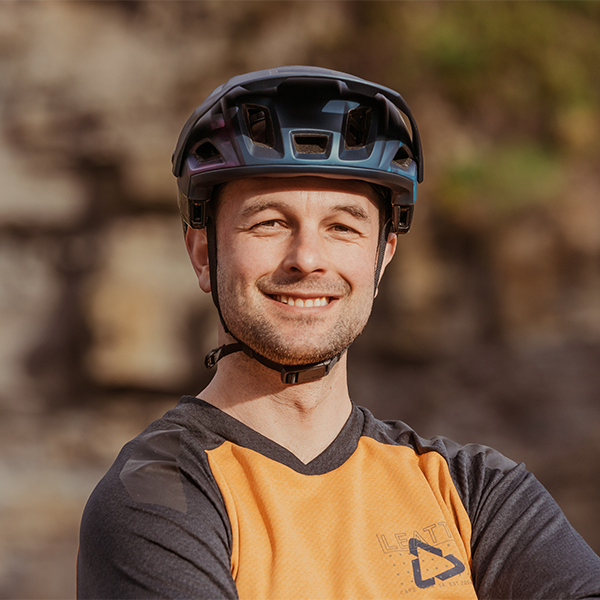Merida's 120mm travel, 29in-wheeled One-Twenty is the brand's self-professed generalist bike and is claimed to reign supreme on the trails thanks to its claimed efficient rear suspension and trail bike geometry.
I took to the trails across the UK to find out whether Merida’s claims ring true or, if in a bid to deliver across a host of terrain types, it lacks focus.
Merida One-Twenty 9.7000 (2020) frame and suspension details
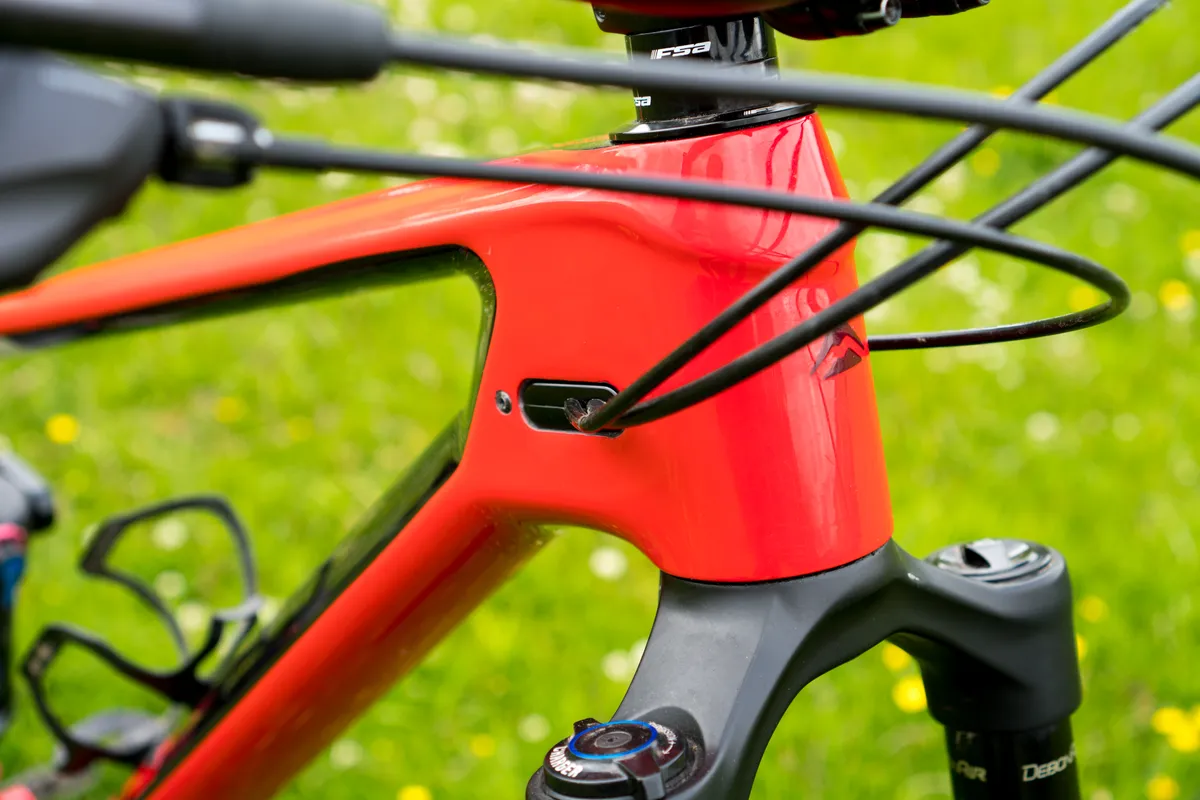
The carbon-fibre front end, with Merida’s Nano Matrix tech that’s claimed to improve impact resistance, is mated to an alloy 6066 hydroformed rear end. The two ends are joined by a linkage-activated single pivot system with a trunnion-mounted floating shock that has 120mm of rear wheel travel.
Dubbed Float Link by Merida, the system is claimed to deliver plushness, feeling nearly bottomless with excellent sensitivity and pedalling efficiency. The bearing top shock mount is claimed to improve sensitivity, too.
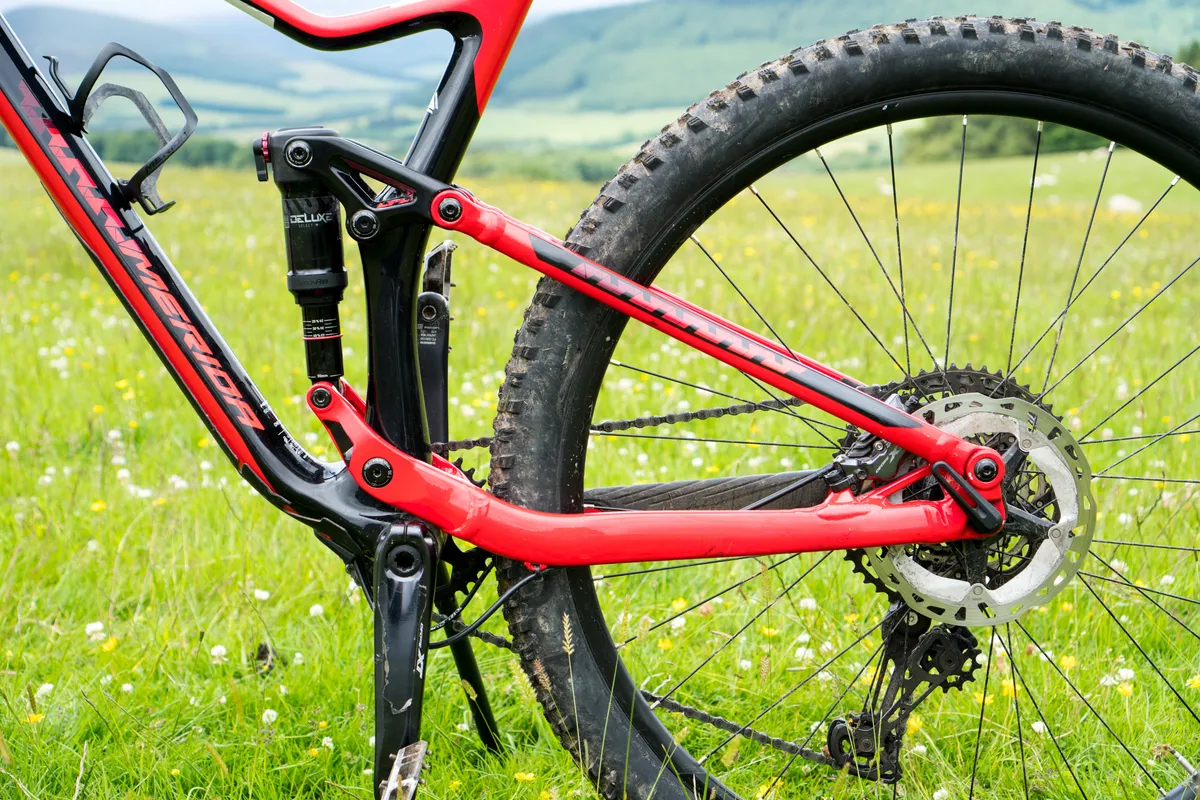
It’s got internally-routed brake, gear and dropper cables from front to back. There’s a single bottle cage on the inside of the front triangle and the frame uses 148 x 12mm Boost rear axle spacing with a BB92 bottom bracket.
It has a tapered head tube and is Shimano Di2-ready.
Merida One-Twenty 9.7000 (2020) geometry
| Frame size | Small | Medium | Large | Extra-large |
|---|---|---|---|---|
| Seat tube length (mm) | 400 | 440 | 480 | 520 |
| Top tube length (mm) | 572 | 592 | 614.4 | 636.8 |
| Chainstay length (mm) | 435 | 435 | 435 | 435 |
| Head tube length (mm) | 95 | 95 | 105 | 115 |
| Reach (mm) | 415 | 435 | 455 | 475 |
| Stack (mm) | 607.1 | 607.1 | 616.3 | 625.5 |
| Wheelbase (mm) | 1,140.7 | 1,160.7 | 1,184.6 | 1,208.4 |
| Stand over height (mm) | 703.2 | 717.6 | 744.7 | 770 |
| Head tube angle (degrees) | 67.3 | 67.3 | 67.3 | 67.3 |
| Effective eat tube angle (degrees) | 75.5 | 75.5 | 75.5 | 75.5 |
Touted as a short-travel trail bike, the size large One-Twenty’s geometry figures appear to be a little on the conservative side with a definite cross-country bias.
The size large I rode has a 455mm reach, 67.3-degree head-tube angle, slackened out from the previous model's 69 degrees, and a 75.5-degree seat tube angle.
The wheelbase is 1,184.6mm, fairly short for a size large 29er, and Merida explains the chainstays have been shortened by 10mm to 435mm over the old One-Twenty, while the top tube is 614.4mm long.
Although, on paper, the One-Twenty’s geometry looks similar to Scott’s Spark trail bike.
Merida One-Twenty 9.7000 (2020) specifications
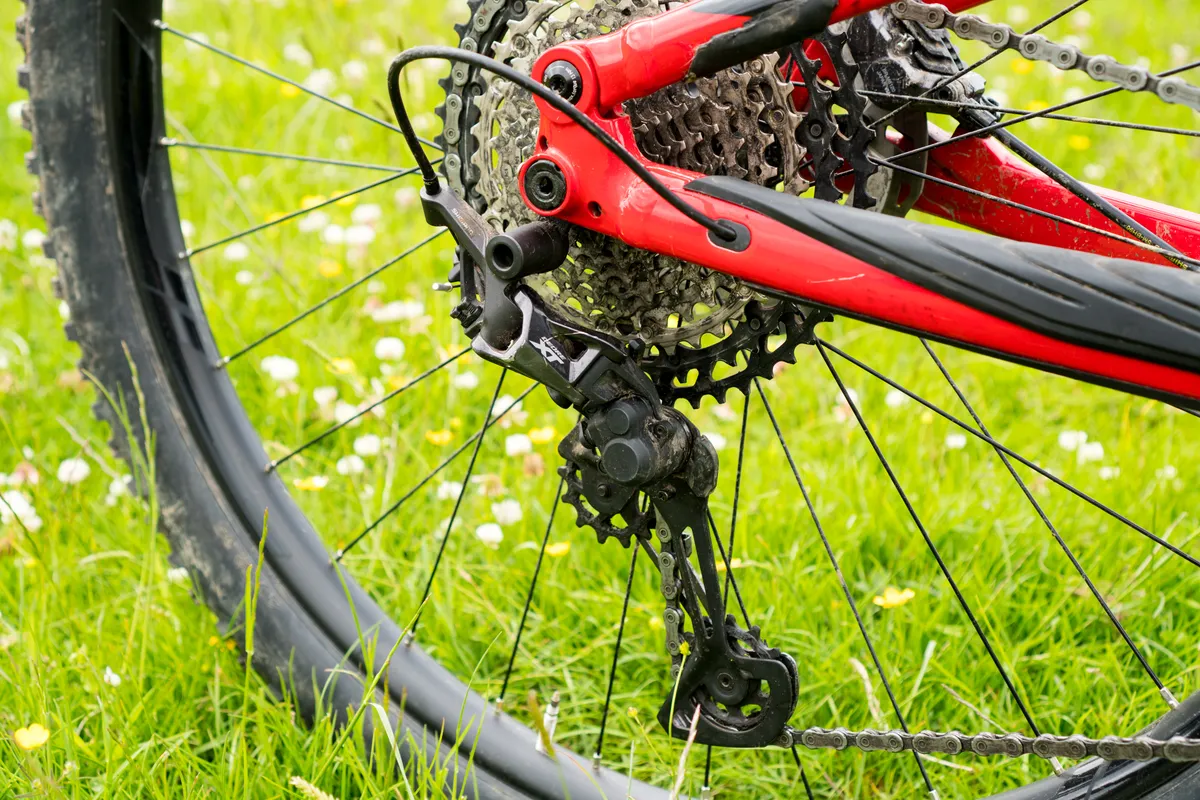
The One-Twenty 9.7000’s spec is impressive considering the £3,600 price tag.
Decked out with a full-house of Shimano’s 12-speed XT drivetrain, Shimano’s XT four-piston brakes and XT hubs laced to Merida Exerpt TR 29mm internal width rims, you can almost count on reliable performance from the Japanese powerhouse’s components.
Suspension comes courtesy of a RockShox Pike Select fork with 130mm of travel and the Charger RC damper, and a RockShox Deluxe Select+ rear shock.
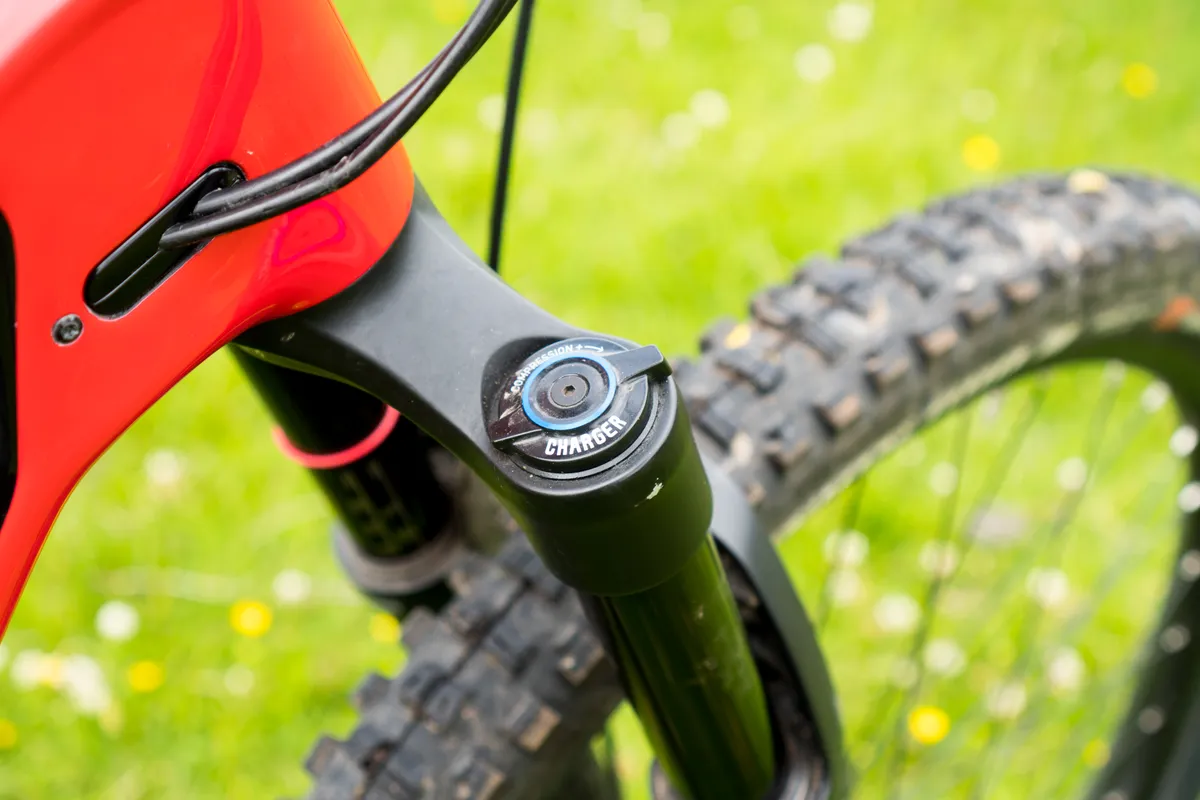
Merida’s clearly managed to spec brand-named kit where it’s needed by choosing to fit an in-house Merida Expert CC saddle – with an integrated tool-stash – and Merida Expert TR bar, stem and 170mm travel dropper post.
The full bike, without pedals in a size large, weighs 13.71kg.
Merida One-Twenty 9.7000 (2020) ride impressions
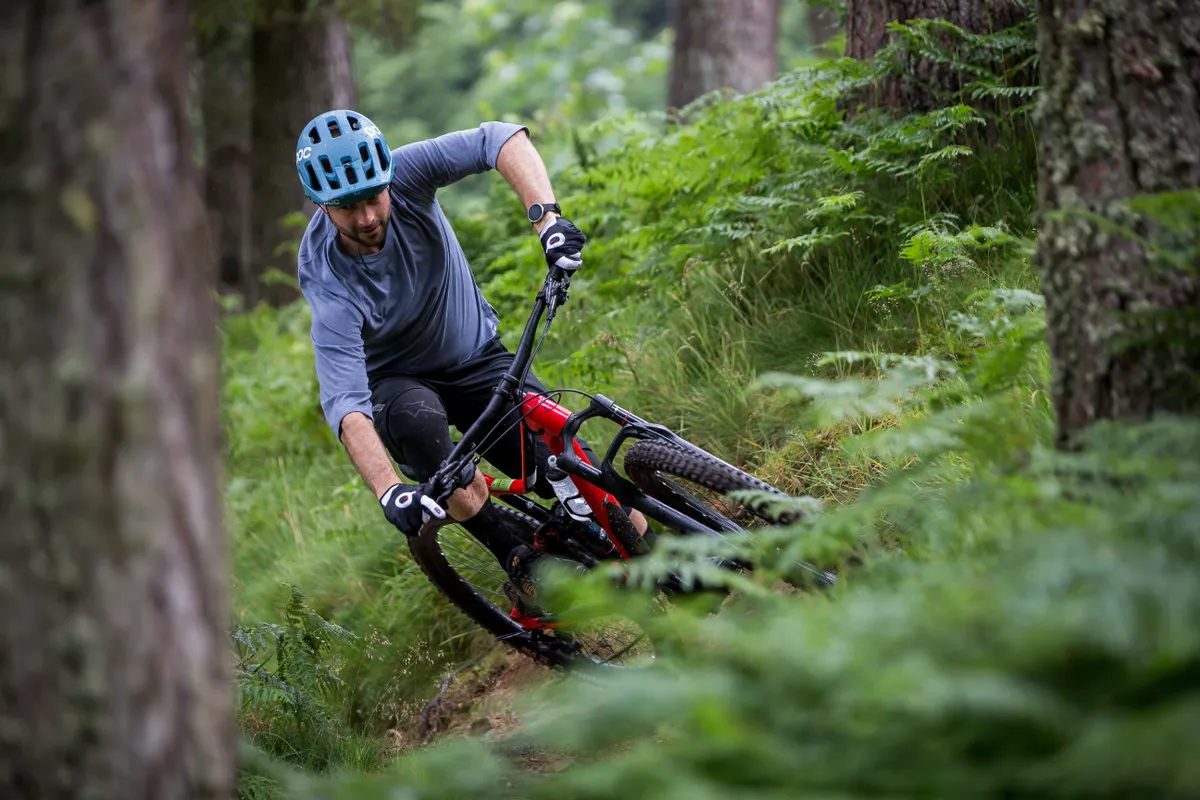
I managed to ride the One-Twenty 9.7000 just before the UK entered the most restrictive phase of its Coronavirus lockdown at the Forest of Dean's Pedalabikeaway trail centre and then during the UK’s lockdown period – as part of my one form of daily exercise – on some of Somerset’s undulating single- and double-track bridleways.
Since the easing of lockdown restrictions I’ve managed to take the One-Twenty around some gnarlier tracks to test whether it truly is as capable as Merida claims.
Setup was relatively straight forward thanks to the RockShox suspension and XT brakes' lever reach adjustment. I set the spring air pressure for my 73kg weight, adjusted lever height, bar roll and saddle position.
As I do with the majority of test bikes, I set the saddle as far forward and nose down in the seatpost as I could. More on this later.
Merida One-Twenty 9.7000 climbing performance
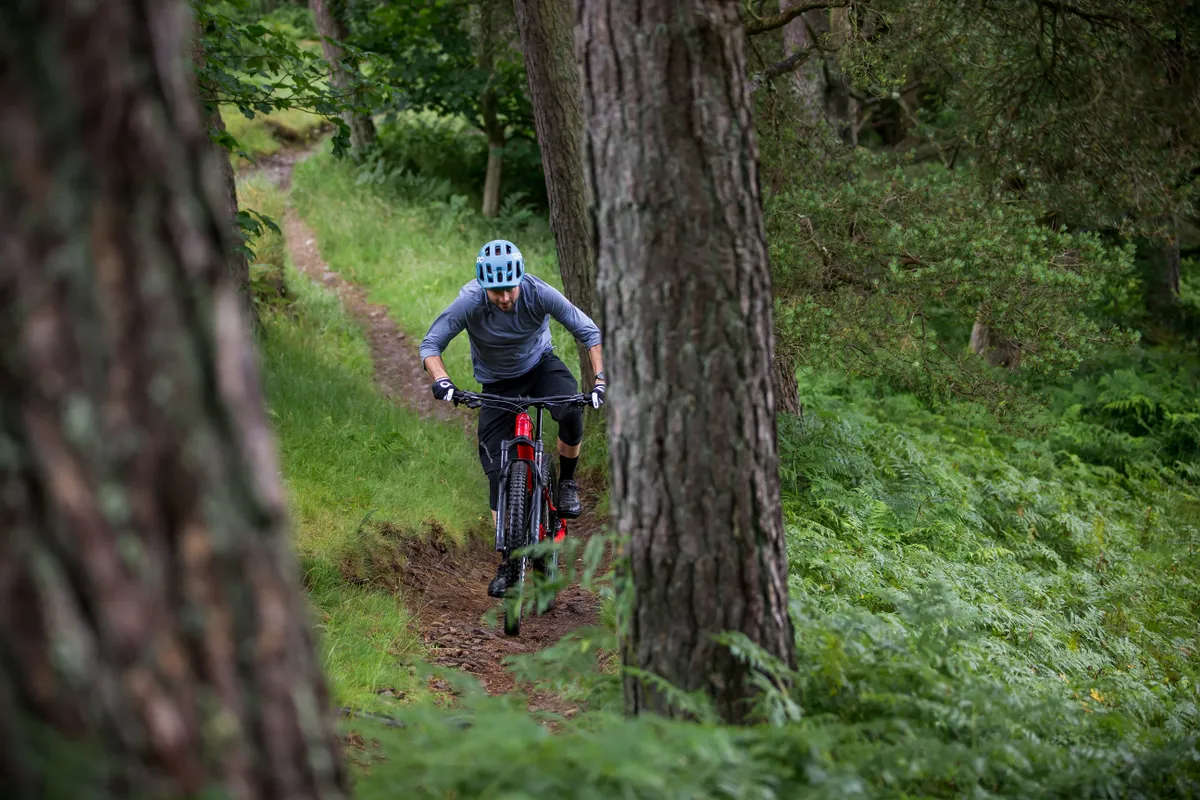
Initial impressions revealed the One-Twenty is certainly more at home when ascending or covering flat ground than when working with gravity. I was grateful for this when attacking the climbs.
The low front-end and relatively high rear – thanks to the fairly long seat tube and low stack height – made it easy to get close to the bars on hard, steep ascents in an aggressive position and put plenty of power through the back wheel.
When climbing seated I felt myself constantly wanting to move my backside closer to the front of the saddle, despite angling it nose down and slamming it forwards on the rails.
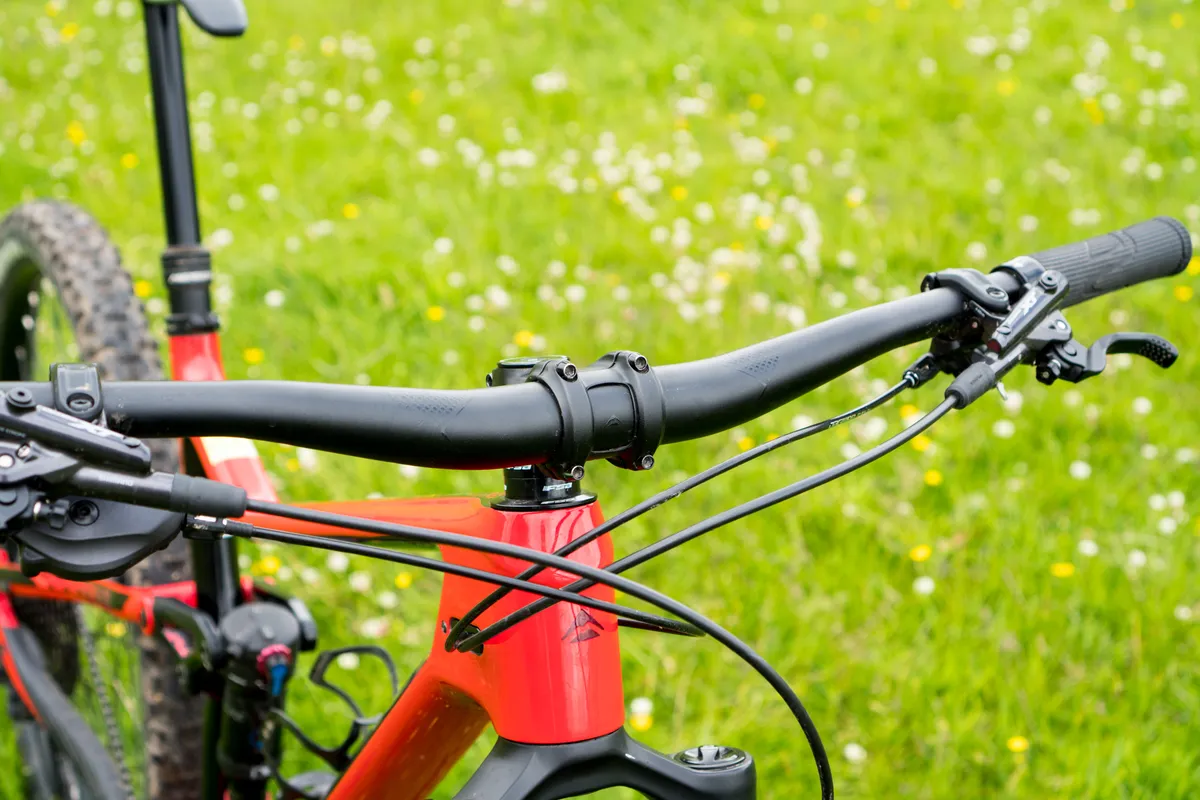
And despite the steep-on-paper effective seat-tube angle, with the saddle extended to full height, it felt like a lot of my weight was too far back on the bike.
Constantly fighting the position the bike wanted to put me in on the climbs did get frustrating and tiring. For that reason, I think the One-Twenty would benefit from a steeper effective seat-tube angle to help naturally centralise weight when in the saddle and heading uphill.
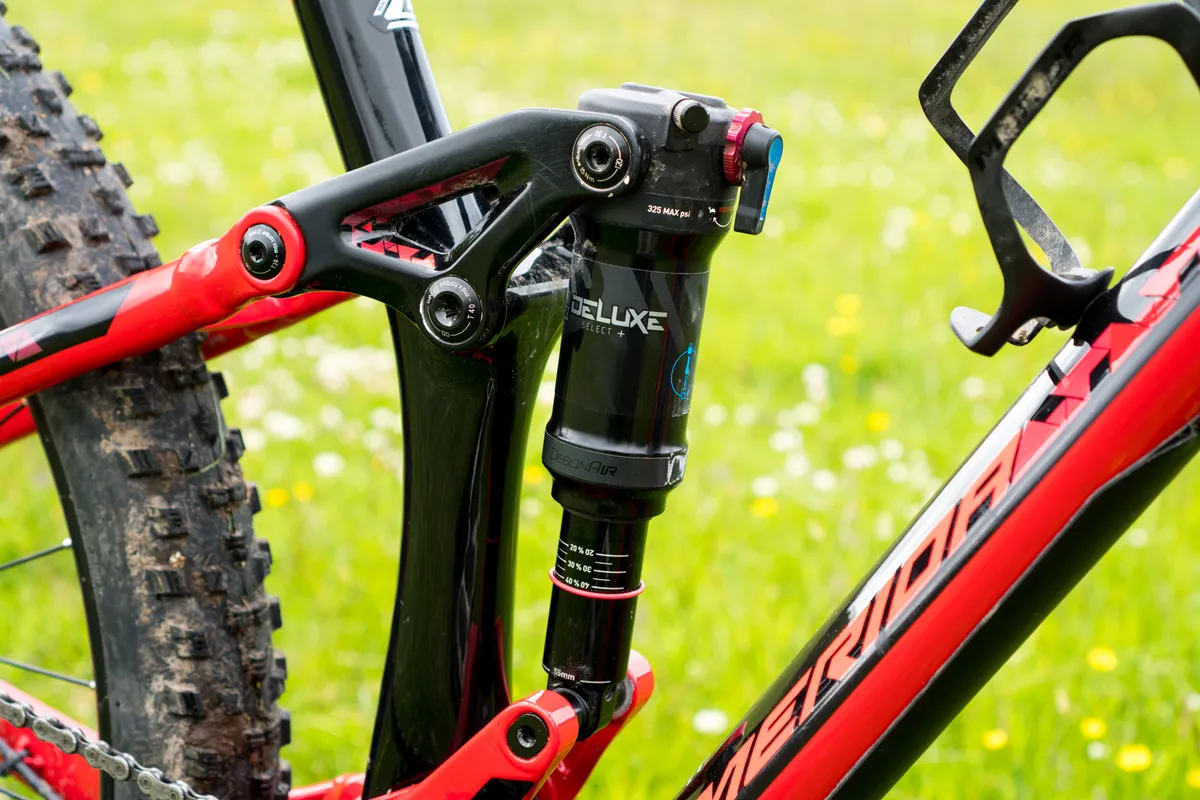
Despite Merida’s claims of having well-controlled suspension for the climbs, with the suspension set up with around 20 per cent sag, I did notice the One-Twenty bobbing when putting power through the pedals, regardless of whether I was seated or standing.
The advantages of this overactive rear-end was that it absorbed bumps well and climbing on bumpy terrain was a generally composed affair, despite the bob detracting a little from the experience.
I found the shock’s climb lever tune to be too strong with its blow-off set too high. This seriously compromised comfort and control on anything other than paved roads or fine gravel fireroads. This meant I left it in the open position all the time.
But in the open position, the rear-end ramped up through deeper holes well. In fact, once it was deeper into its travel it felt like it had more than 120mm of squish, even on the climbs.

However, the bike as a whole package felt quite stiff. And while this helped when really putting the power down, it reduced perceived comfort. When combined with the active suspension, it made the ride feel quite mixed.
To counteract the bob, I ended up increasing shock pressure and reducing sag to between 10 and 15 per cent. Although the suspension calmed down, the higher-pressure settings combined with the frame’s stiffness produced a harsh ride, especially when riding sun-baked, rocky bridleways.
On the climbs, I couldn’t fault most of the bike’s parts, though. The dropper performed as it should, providing ample travel to raise the saddle to the correct height while dropping far enough for the descents.
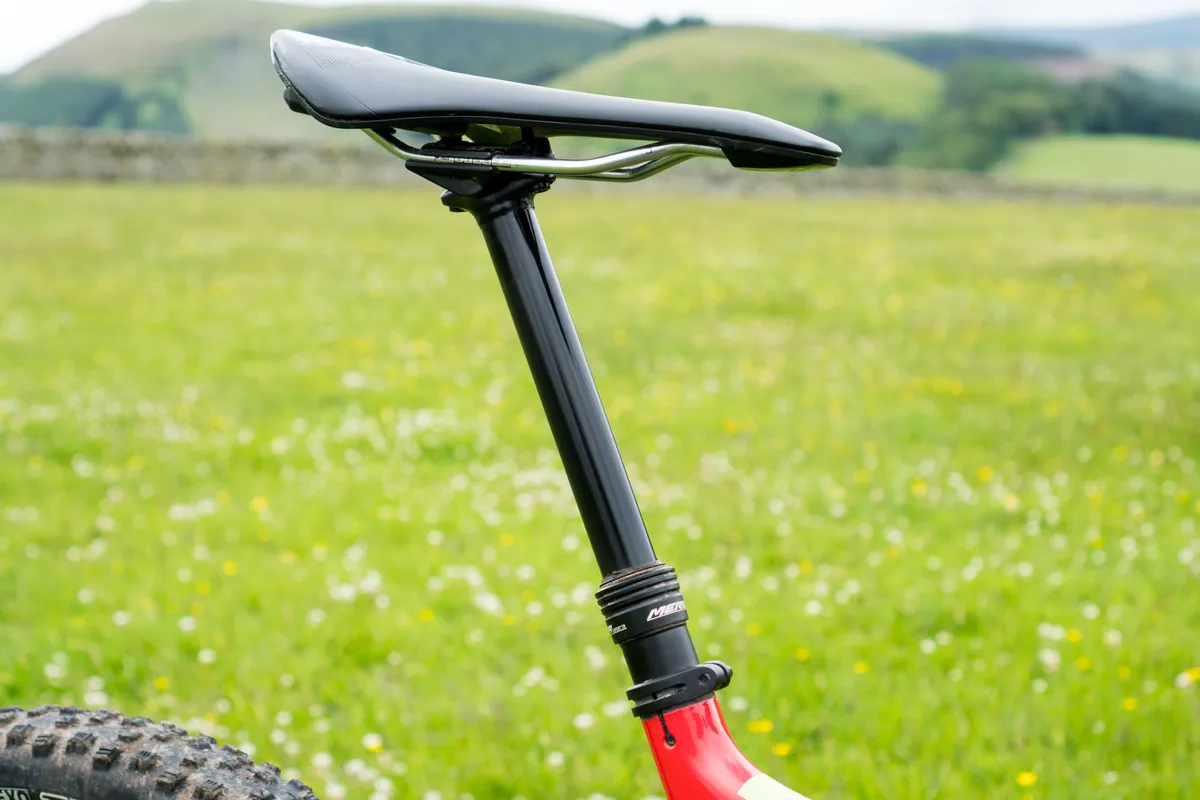
The Shimano XT drivetrain, with 32-tooth chainring and 10-51-tooth cassette, had plenty of range to help me winch to the top of steep climbs without running out of puff and consistently shifted crisply.
I found the saddle to be uncomfortable for me, though. I'm a fan of the SQlab 610 ERGOLUX Active 2.0, so this should come as no surprise, but it’s a relatively easy and inexpensive part to swap out.
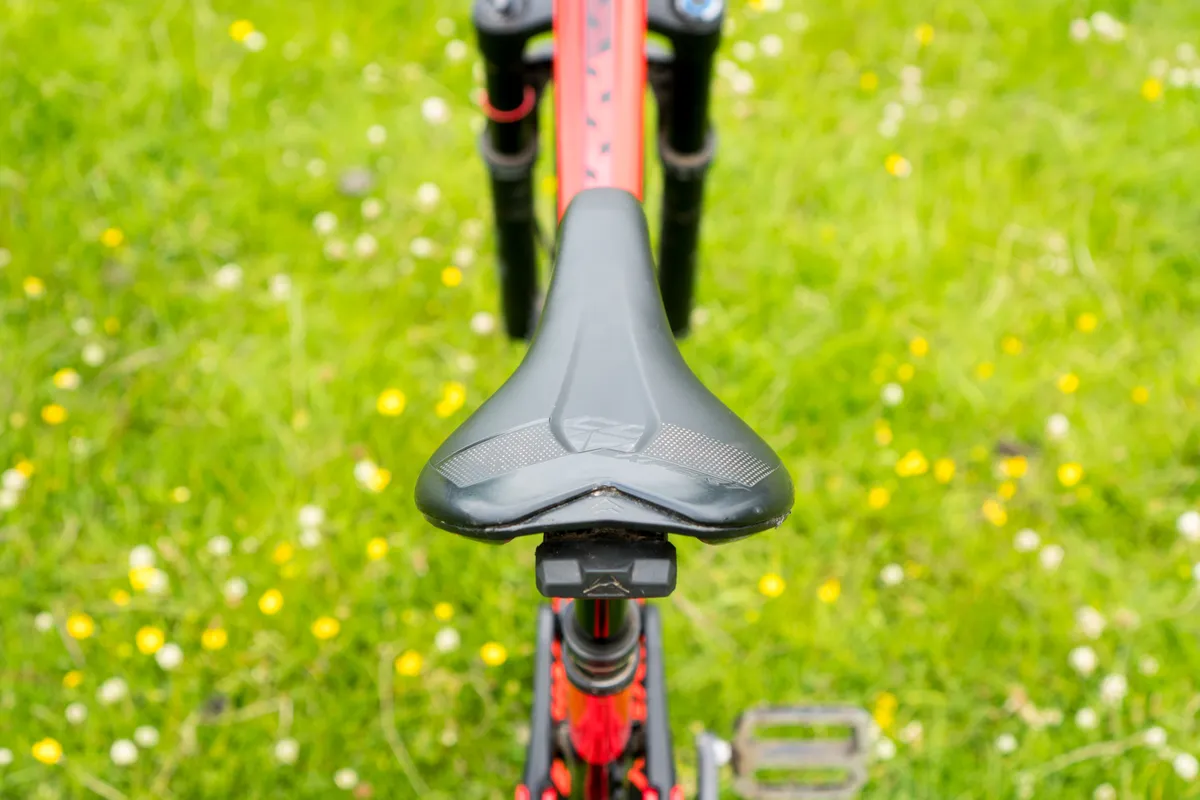
The Maxxis Minion DHRII and Forekaster tyre combo, while logically a sound choice for striking a balance between grip and rolling resistance, left me scratching my head on the trail somewhat.
The 2.4in-wide Minion up front, in 3C MaxxTerra compound, had plenty of drag while the 2.35in Forekaster with its Dual compound tyre was quicker rolling.
Together, though, they just don’t make sense. On rocky, rooty or wet hard pack climbs the Minion gripped well, but the harder compound Forekaster slipped, undermining the confidence created by the front end.
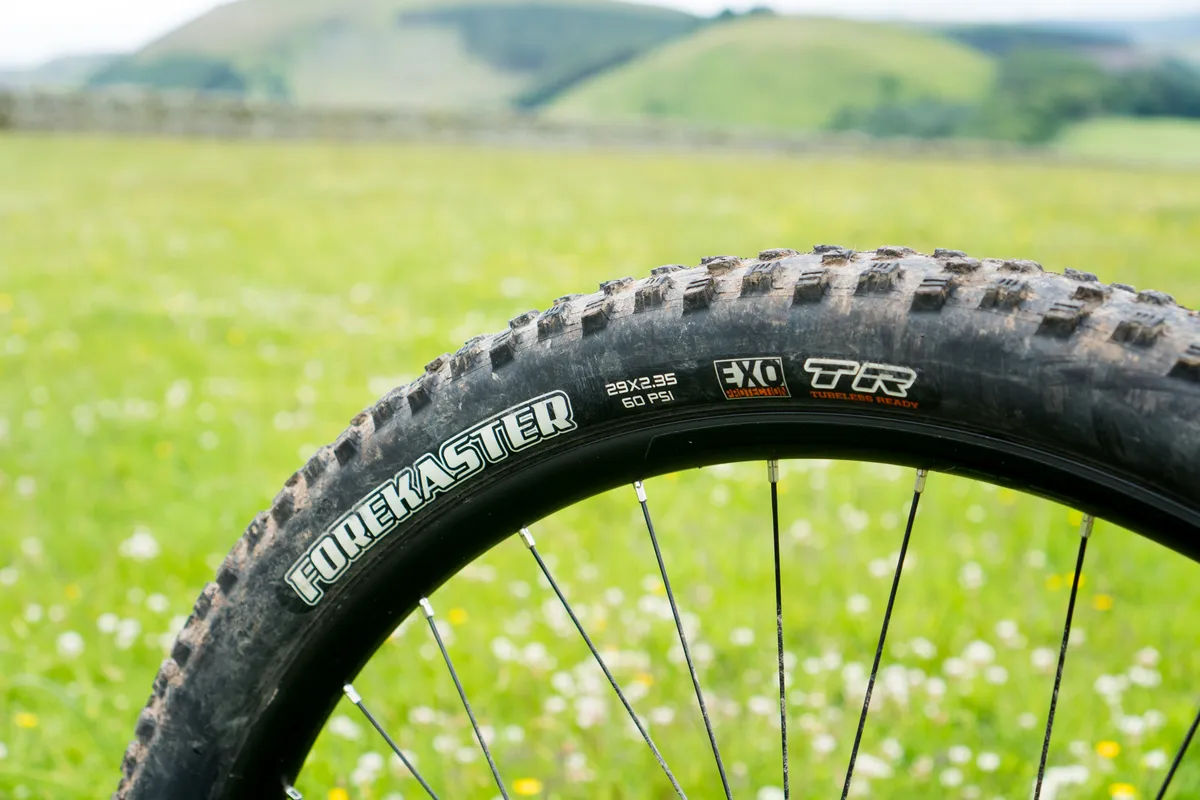
In a similar way, the speed benefits of the Forekaster’s hard compound were quickly outweighed by the Minion’s tacky rubber.
I certainly think combining a faster rolling tyre with an aggressive one is a good idea, but there needs to be a better balance between the rubber compound to help with consistent, predictable grip.
Unfortunately, the tyres weren’t just problematic on the climbs and this discrepancy with the compounds affected descending, too.
Merida One-Twenty 9.7000 descending performance
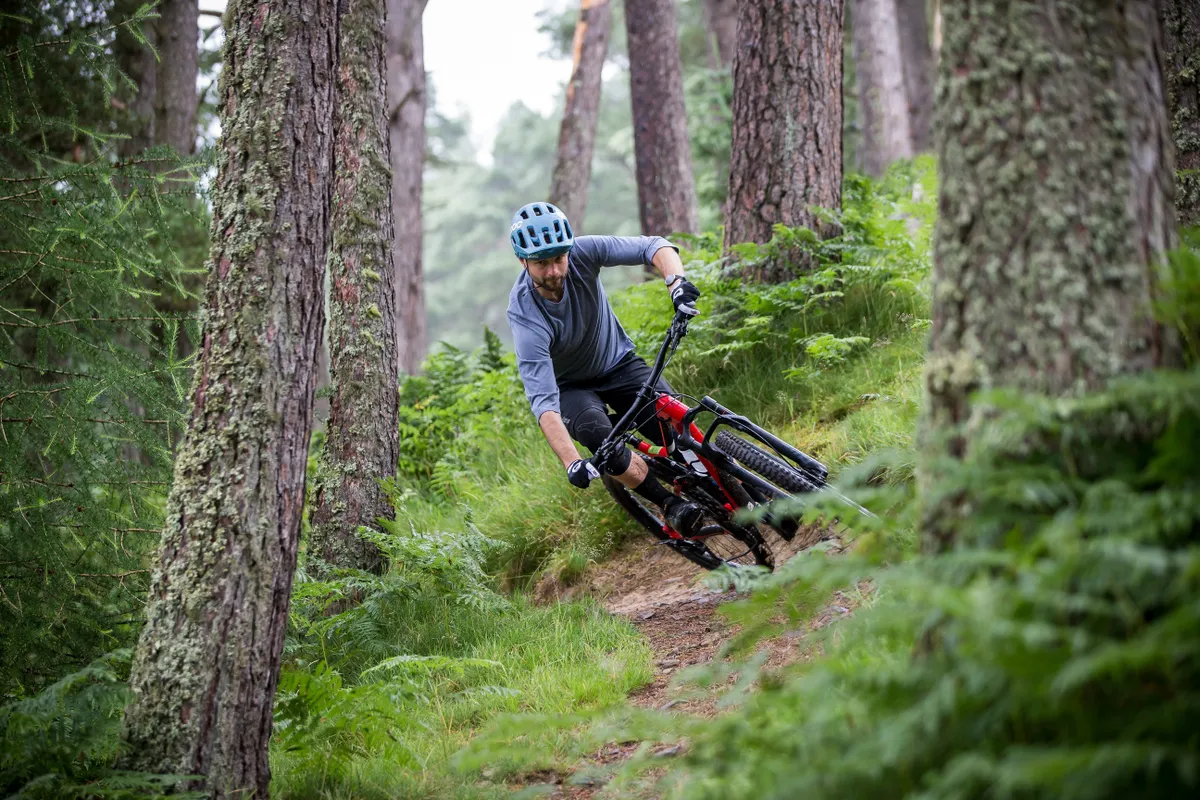
Merida’s take on modern trail bike geometry appears to be a little at odds with the rest of the market, such as Santa Cruz’s 120mm travel Tallboy or Norco’s Fluid trail bike with the same travel, but that isn’t to say the One-Twenty taking its own direction is a bad thing.
In fact, the One-Twenty generated speed well over undulations and through rocky sections, especially when pumped over terrain in a hard and aggressive way.
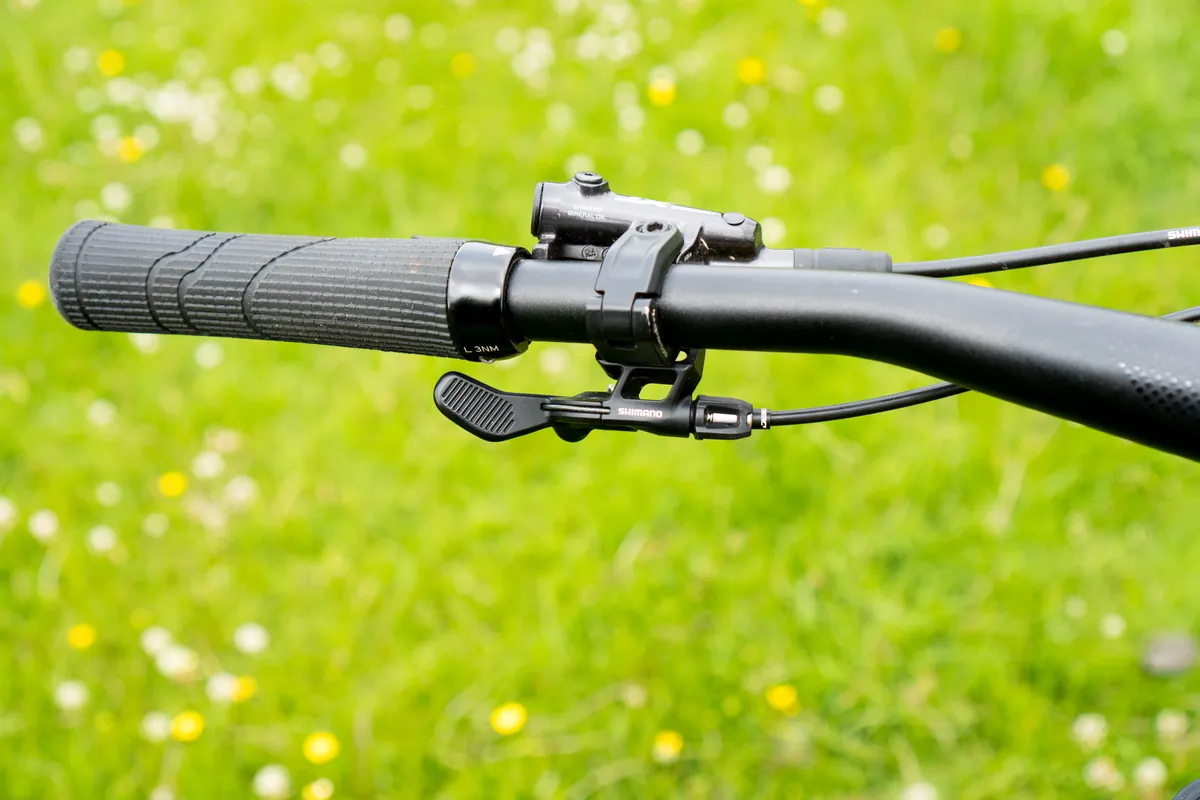
True to Merida’s word, it feels like this easy access to speed is produced by the bottomless-feeling of the rear suspension and it's so well behaved deeper into its travel that bottom-outs were virtually imperceptible.
However, with the bike setup harder to counter pedal bob and its stiff front end, it feels harsh on anything but a smooth ribbon of freshly-packed trail centre.
Way too much feedback made its way into my arms and backside when seated and, at times, this made it hard to stick to a line or stop rocks and roots deflecting me off-line.
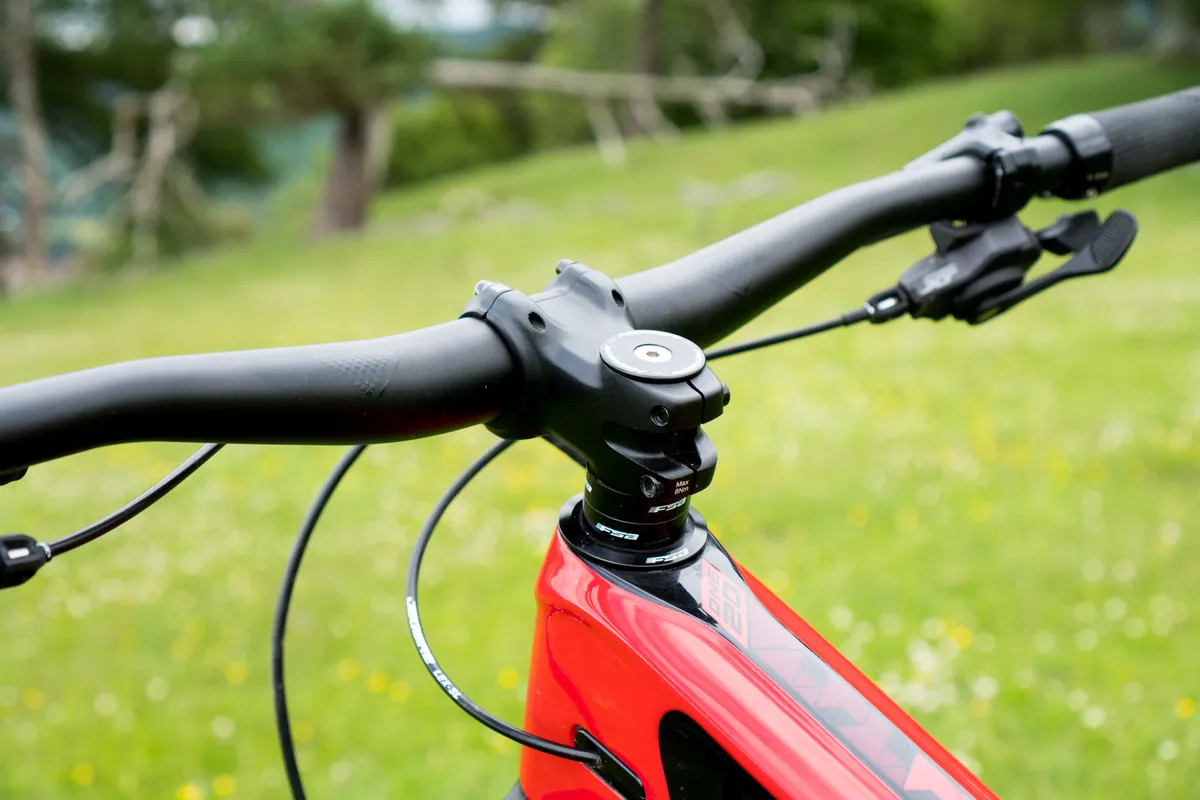
Although the pedal bob was less of an issue on the descents, and a softer spring rate would help to mitigate some of this harshness, finding a compromise between the two settings proved tricky.
A rear shock with low-speed compression adjustment or a harder low-speed tune should help create a little more balance from the rear-end of the bike.
The next model up in the One-Twenty range, the 9.8000, is fitted with RockShox’ Deluxe Ultimate, which has low-speed compression adjustment that should help with the issue I encountered on the 9.7000. More low-speed compression adjustment should allow a more comfortable amount of sag to be run, too.
Along with the suspension, the geometry meant the One-Twenty did struggle when speeds increased or the gradient of the trails steepened.
And while this wasn’t an issue on flatter, easier trail centre loops or bridleways, in the spirit of Merida’s claims the One-Twenty is a true generalist. I took it down some trail centre black runs and tame by enduro standards 'secret' trails.
The short wheelbase, relatively diminutive reach and steep-ish head angle certainly let the bike get out of its depth quickly and put the brakes on me taking the One-Twenty down steeper tracks again.
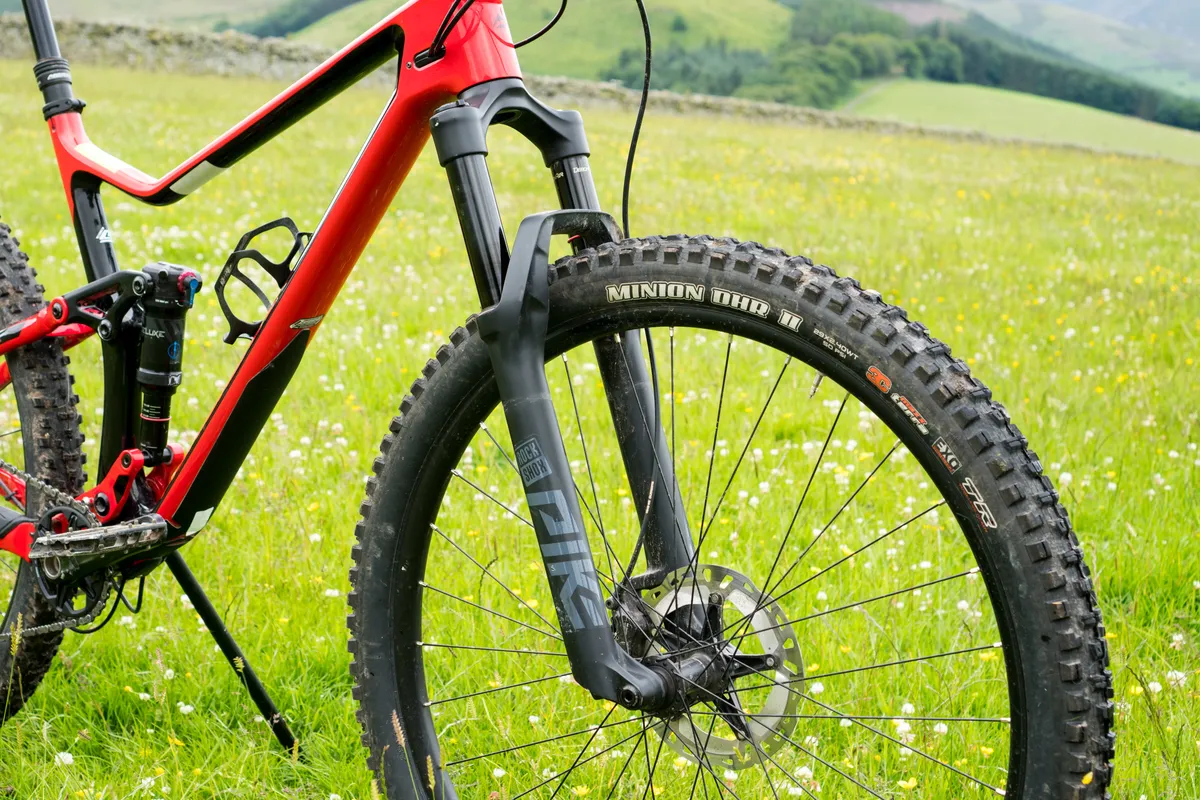
The optimist in me would describe the One-Twenty as a flicky, fun and playful trail bike, or radder XC bike, but I can’t help but feel the spec is at odds with that assessment.
Only a few years ago a RockShox Pike would have been described as an enduro fork, a spec choice hinting at the Merida’s more hardcore intentions.
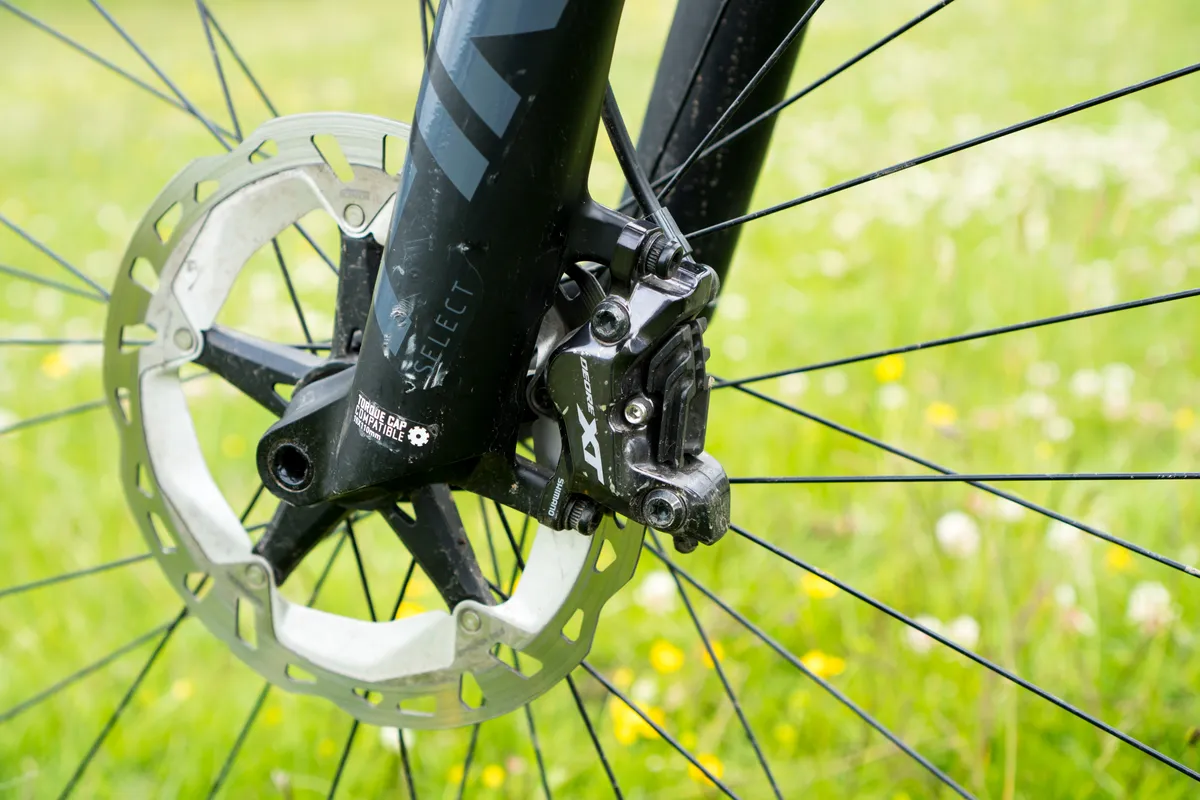
Likewise, a dropper post, 760mm wide handlebar and four-piston XT brakes are parts all equally at home on a hardcore enduro rig. At this point it would be unfair to ignore the Minion DHRII tyre mounted to the front of the bike.
Its width and compound do their best to egg you on, only for the rear Forekaster to come unstuck as soon as the trail’s texture gets a bit rowdier. And that brings me to the tyres’ carcasses.
The EXO-casing rear Forekaster, while fine for a front tyre, got three punctures during the testing period. That’s the most I’ve had all year.
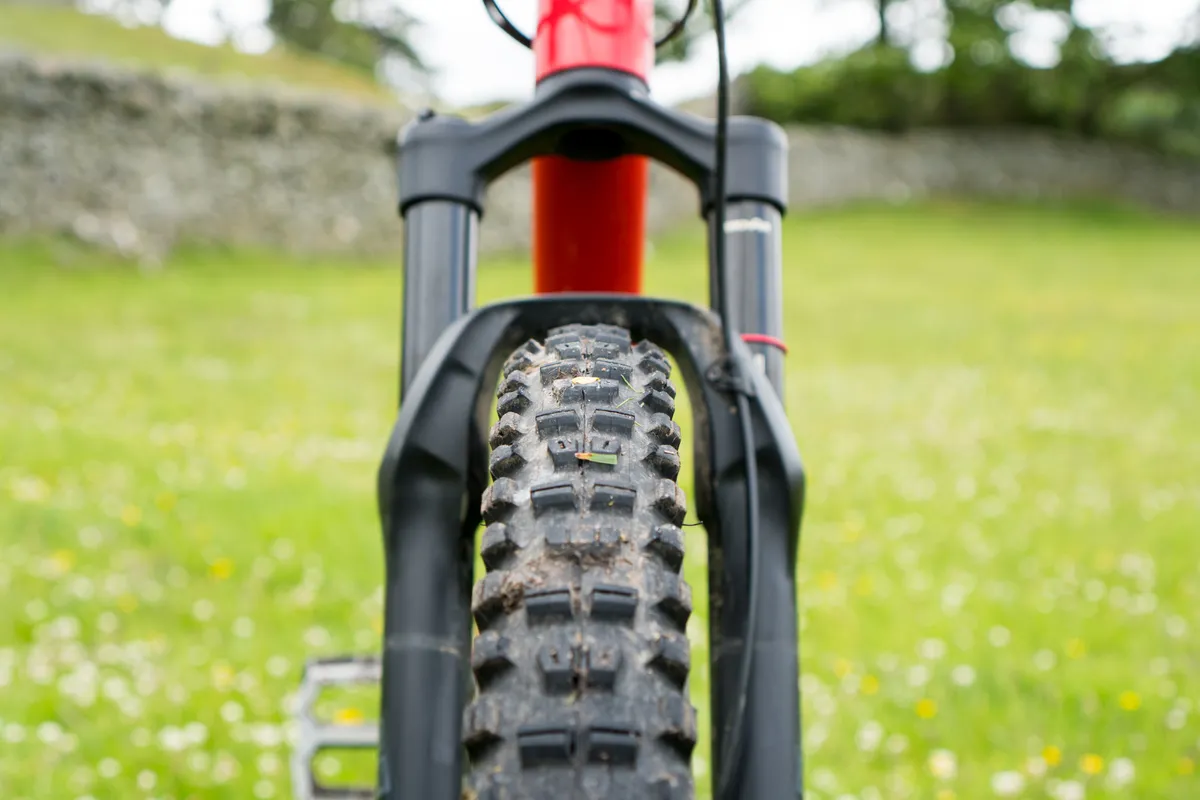
So while the front tyre eggs you on, as does the bike's overall spec, the rear tyre and geometry suddenly scream for you stop just as things get spicy.
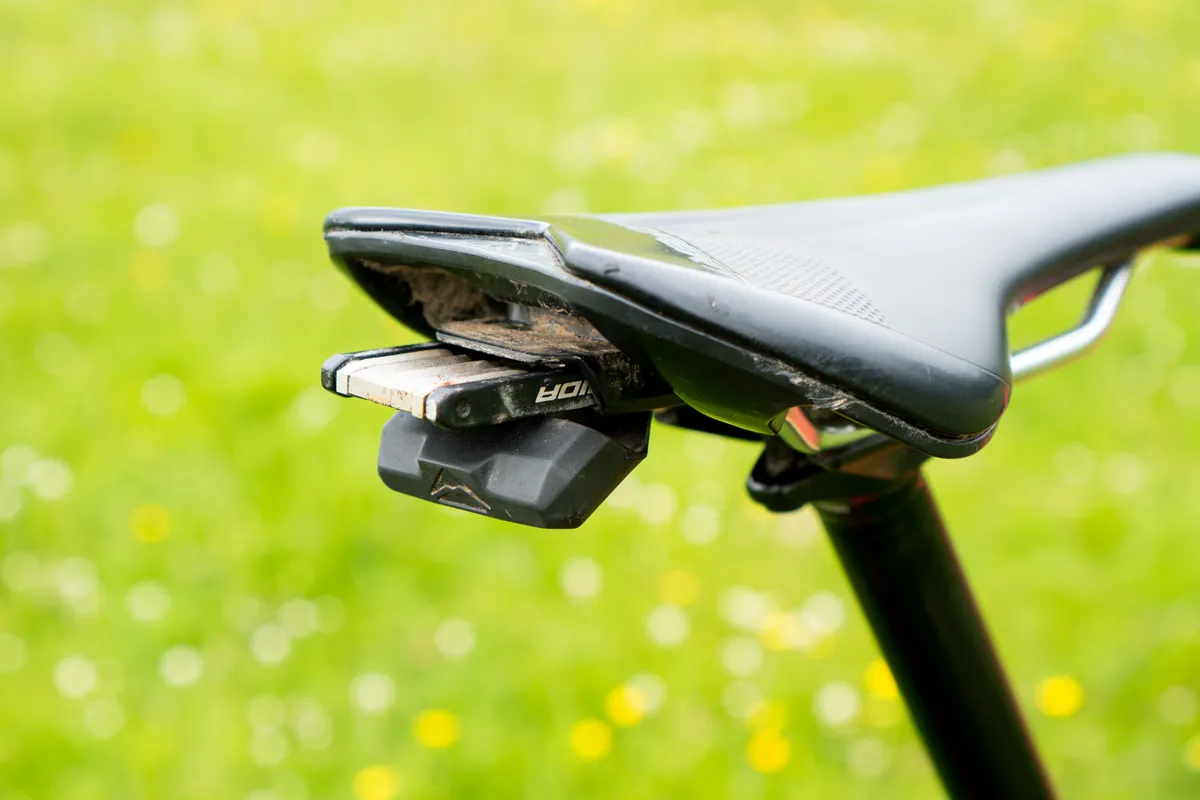
The on-saddle multi-tool storage is a neat idea, but considerably less refined than Specialized’s SWAT system.
The tool rattled so much, creating a terrible din during the test period, I had to remove it from the bike. Great idea, just poorly executed.
Merida One-Twenty 9.7000 (2020) bottom line
It appears the One-Twenty’s problem stems from it trying to be a true generalist and appeal to as many riders as possible. In doing so, arguably Merida’s missed the point.
Some of its components want to shred and its suspension is, particularly when descending, impressive considering the amount of travel on offer.
But the geometry held me back, unless I was riding relatively easy trails, and its XC-biased frame construction felt too focused on power delivery than comfort.
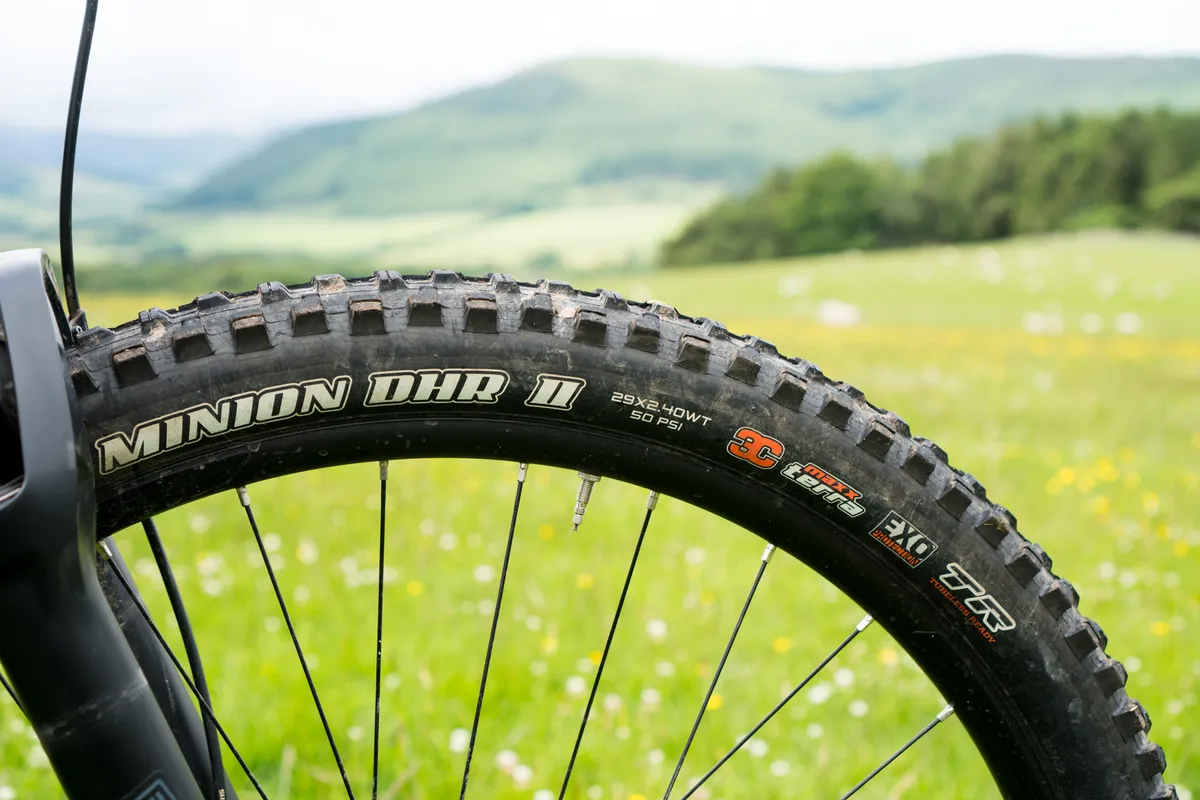
What is the One-Twenty, then? It feels like a longer travel XC bike with hardcore parts or a short-travel trail bike that needs to be ridden on XC trails due to limiting geometry.
When ridden within its limits, it is a fun bike and I particularly appreciated the speed easily generated on flat sections, but I came away frustrated when I couldn’t shred as hard as the spec promised.
Product
| Brand | merida |
| Price | 3600.00 GBP |
| br_whatWeTested | Merida One-Twenty 9.7000 |
| Weight | 13.7100, KILOGRAM (Large) - Size large, without pedals, including built-in multi-tool |
Features
| Fork | RockShox Pike Select, 42mm offset |
| br_stem | Merida Expert TR 50mm long, 0-degree rise |
| br_chain | Shimano XT |
| br_frame | Carbon front triangle, aluminium rear triangle |
| Tyres | Maxxis Minion DHRII TR EXO 3C 29X2.4in (f), Maxxis Forekaster TR EXO Dual 29X2.35in (r) |
| br_brakes | Shimano XT with 180mm rotors front and rear |
| br_cranks | Shimano XT, 175mm with 32-tooth chainring |
| br_saddle | Merida Expert CC |
| br_wheels | Merida Expert TR aluminium 29mm internal width rims on Shimano XT hubs |
| br_headset | FSA |
| br_shifter | Shimano XT |
| br_cassette | Shimano XT 10-51-teeth, 12-speed |
| br_seatpost | Merida Expert TR 30.9mm diameter, 170mm travel |
| br_gripsTape | Merida Expert EC |
| br_handlebar | Merida Expert TR, 20mm rise, 760mm wide |
| br_rearShock | RockShox Deluxe Select+ |
| br_bottomBracket | Shimano MT800-PA |
| br_availableSizes | Small, medium, large, extra-large |
| br_rearDerailleur | Shimano XT M8100 Shadow Plus |
| br_frontDerailleur | N/A |
| Features | 120mm travel, carbon front end, aluminium rear, 29in wheels, BB92, 142X12mm axle |
